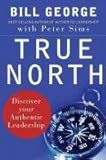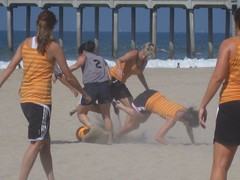 Admit it, you’ve Googled someone before. Maybe it was someone you were dating. Maybe it was someone you had a crush on.
Admit it, you’ve Googled someone before. Maybe it was someone you were dating. Maybe it was someone you had a crush on.
But how about when you have a sales meeting and are about to meet a new prospective client?
If you are an experienced salesperson, I’m probably preaching to the choir. For those like me who are in the consulting & services business and relatively new to the sales role, I have this to say:
Do your homework whenever you meet someone new.
This applies all around the sales cycle. From following up on leads to meeting other stakeholders to getting their team introduced with yours. Throughout this process, you are likely to meet several different people (or one person fulfilling all of these roles):
- Primary stakeholder – the person with the budget
- Influencers – other stakeholders who have a say in this decision
- Project manager – the person who coordinates the work between your client and your team, also often the main point of contact
- Workers – employees from your client’s team with whom your team will have to interact
Do your homework on each of them. For a service organization, all the members of your client’s team are important and critical to your success.
Why?
The goal isn’t to stalk the person. It’s to find meaningful connections. If the person likes the San Francisco Giants, and hey, so do you, then bring it up. If you’re not a fan, then keep your mouth shut. Don’t be insincere with these connections. Use them only if they honestly exist. Otherwise, you might find yourself in a TV sitcom where you’re trying to lie and squirm your way out of a totally alien discussion. And all without a laugh track.
If there are no connections, consider identifying a key achievement that person has made and offering congratulations. Perhaps the person started a company that launched a successful product in the past. Perhaps the person wrote a book or article you’ve read. Again, don’t be overtly insincere, though a little flattery can get you a long way.
It also helps to understand the person’s background. If he/she comes from a technical background, then you can tailor your sales pitch to a more technical audience. If he/she comes from a marketing background, then emphasize potential branding and identity benefits. Use key terminology from their background.
So far, I haven’t had a case where a person has been offended or frightened by this research. In fact, many seem to be flattered by it, even expect it. Some don’t care though; they’re more interested in the deal and how it can help them.
All of this assumes you’ve already done your homework with the company, their department, and their needs. Don’t even bother researching the people if you haven’t researched their business.
Ultimately, you want to form a connection with these stakeholders. If they feel they can relate to you on a personal level, and they feel you can sincerely understand them on a professional & personal level, then they are more likely to sign a contract with you.
How?
Here’s what I do:
-
Google (GOOG) – I start with a good, old-fashioned Google search. This usually gives me most of the information I need, such as links to a blog, Twitter account, resume, etc.
I always start with the blog, if one exists. This gives me a good overview of the person and his/her personality & interests. Does the person have a sarcastic sense of humor? A dry wit? Does the person have any hobbies or interests with which I can relate? Has this person done anything notable that I want to call out?
-
LinkedIn.com – If the previous search doesn’t turn up a LinkedIn profile, then I perform one specifically on this site. Most people in my industry have a LinkedIn account.
This gives me an overview of the person’s education and career path, which tells me the language he/she speaks (technical, marketing, design, financial, etc) and how I should tailor my sales pitch.
- Others – I know some salespeople go further and check out Facebook, MySpace, and other similar sources. Personally, I don’t. If you aren’t a member of that person’s Facebook network, then you won’t be able to see deeper details. Also, the interests and photos included on Facebook don’t help as much as a blog or personal website. It’s tough to form a connection on a favorite TV show, especially if you don’t know how much they like it, or if their profile has been updated recently. My experience, anyways; some still do this research all the time. And practically no one in my industry uses MySpace (that I know of).
Once you have this information, share it with your team. Help them to understand the client better. This can strengthen the relationship on both sides.
There will be a few cases where such web research doesn’t help because the person keeps a private offline life. That’s fine. That’s where you’ll need to muster up your interpersonal skills and form a connection the old fashioned way. These tips just offer an extra advantage. If the information is out there, why not use it, right?
Photo by: fazen



